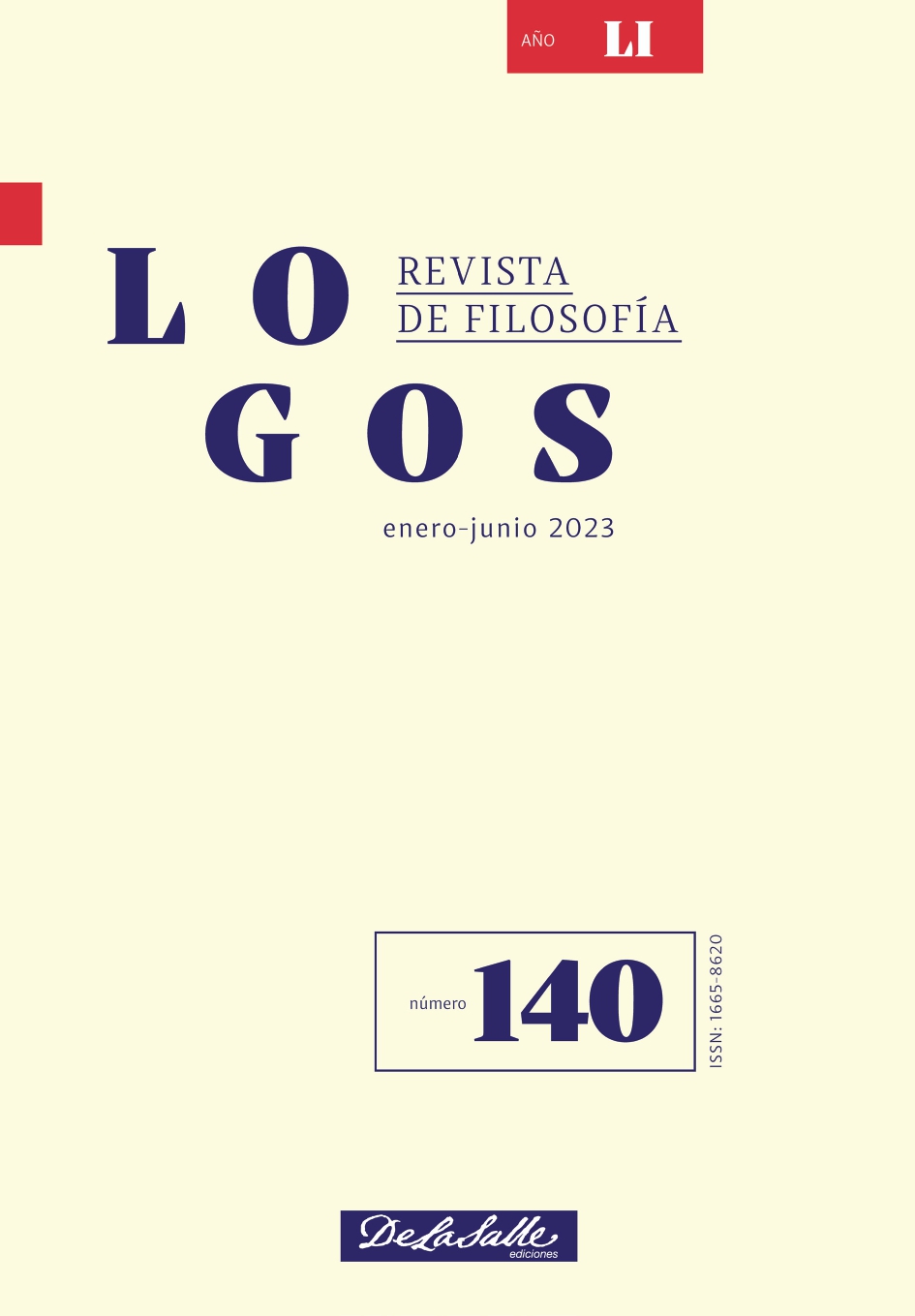Idealism and Romanticism in the face of the problem of liberty
DOI:
https://doi.org/10.26457/lrf.v140i140.3622Keywords:
German cultural Revolution, causality, apperception, geniusAbstract
The purpose of this paper is to provide a historical-philosophical perspective of
Idealism and Romanticism. In this research, the strategy we follow is analyzing these German intellectual movements from the problem of incorporating freedom into the structure of human subjectivity, a typical trait of philosophical Modernity. Idealism and Romanticism emerge in Germany thanks to the influence exerted by the free spirit of the French Revolution. This German cultural revolution took place with the Jena Circle, a group which brought together many of the most influential intellectuals in the history of philosophy and literature. Immanuel Kant’s ideas —specifically, the issues about apperception
Downloads
References
Ameriks, K. (2000). Introduction: Interpreting German Idealism. En K. Ameriks (Ed.), The Cambridge Companion to German Idealism (pp. 1-17). Cambridge University Press.
Berlin, I. (1999). Las raíces del romanticismo (S. Marí,Trad.). https://www.academia.edu/41565372/Las_Ra%C3%ADces_del_Romanticismo
Colomer, E. (1986). El pensamiento alemán de Kant a Heidegger. Tomo II. El idealismo: Fichte, Schelling y Hegel. Herder.
Descartes, R. (1986). El mundo o Tratado de la luz (L. Benítez Grobet, Trad.). Instituto de Investigaciones Filosóficas-unam.
Fichte, J. G. (2010). Fundamento de toda la doctrina de la ciencia (J. Cruz Cruz, Trad.). Gredos.
Goethe, J. W. (1907). Fausto I (M. A. Matta, Trad.). Pontificia Universidad Católica del Perú. https://www.cervantesvirtual.com/descargaPdf/fausto-i/
Hampton, A. (2015). Religion and the Problem of Subjectivity in the Reception of Early German Romanticism. Journal for the History of Modern Theology, 22(1), 35-58.
Hegel, G. W. F. (2010a). Fenomenología del espíritu (J. Chamorro Mielke, Trad.). Gredos.
Hegel, G. W. F. (2010b). Lecciones de la filosofía de la historia (J. M. Quintana Cabanas, Trad.). Gredos.
Henrich, D. (2008). Between Kant and Hegel. Lectures on German Idealism (David S. Pacini, Ed.). Harvard University Press.
Herder, J. G. (2010). Otra filosofía de la historia para la educación de la humanidad (P. Ribas, Trad.). Gredos.
Hernández-Pacheco, J. (1995). La conciencia romántica. Con una antología de textos. Tecnos.
Hölderlin, J. C. F. (1995). Poesía completa. Edición bilingüe (F. Gorbea, Trad.). Ediciones
Hölderlin, J., Schelling, J. y Hegel, G. W. F. (1995). Esbozo del más antiguo pro- grama
sistemático del idealismo alemán (M. Á. Vega, Trad.). Hieronymus, (1), 117-120.
Kant, I. (2010a). Crítica de la razón práctica (R. R. Aramayo, Trad.). Gredos. Kant, I. (2010b).
Crítica de la razón pura (P. Ribas, Trad.). Gredos.
Kant, I. (2010c). Crítica del juicio (M. García Morente, Trad.). Gredos.
Kant, I. (2010d). Idea para una historia universal en clave cosmopolita (Trad. Rober- to R.
Aramayo). Gredos.
López-Domínguez, V. (2017). La filosofía clásica alemana es obra de teólogos encubiertos: el
protestantismo en la génesis del idealismo alemán. Theoría. Revista del Colegio de Filosofía, (33),
-162.
Novalis (1998). Himnos a la noche. Enrique de Ofterdingen (Eustaquio Barjau Trad.).
Cátedra.
Rousseau, J.-J. (2010a). Discurso sobre el origen y los fundamentos sobre la desigual- dad entre
los hombres (S. Masó, Trad.). Gredos.
Rousseau, J.-J. (2010b). El contrato social (C. Bergés, Trad.). Gredos.
Safranski, R. (2009). Romanticismo. Una odisea del espíritu alemán (R. Gabás, Trad.).
Tusquets.
Schelling, F. W. J. (1989). Investigaciones filosóficas sobre la esencia de la libertad huma- na y
los objetos con ella relacionados (H. Cortés y A. Leyte, Trads.). Anthropos.
Spinoza, B. (2010). Ética. Demostrada según el orden geométrico (O. Cohan, Trad.).
Gredos.
Veleva, M. (2019). Schelling y el Romanticismo. Aisthesis, (66), 61-81.
Zöll r, G. (2018). Filosofía sistemática de la libertad. Kant y Fichte en compara-
ción crítica (E. Charpenel, Trad.). Tópicos, (55), 251-274.


